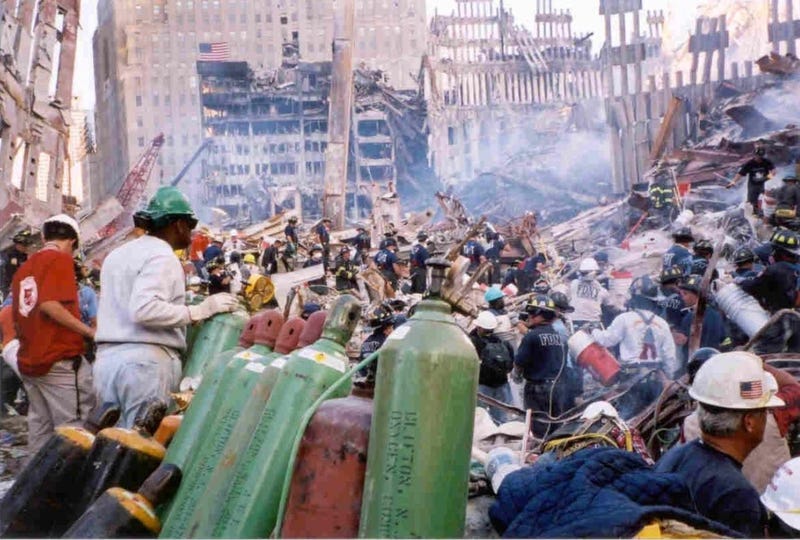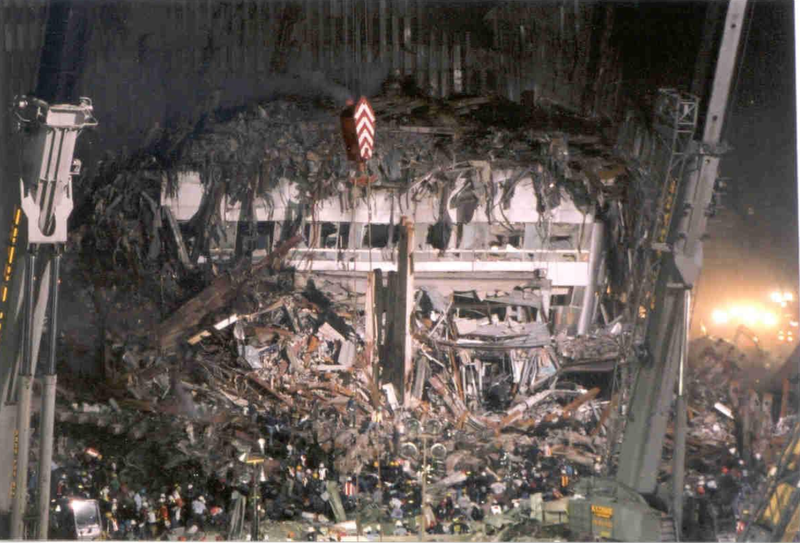On September 12, 2001, Liam Strain took the subway from his house in Brooklyn to the Javitz Center in Hell’s Kitchen. It had become the command post for the response to the attack on the World Trade Center.
Strain lives in Mt. Airy now. He’s a national park ranger and had taken first responder training before the 9/11 disaster, so he wanted to help.
Listen to your favorite News/Talk station now on Audacy
“My personal response had to do with it being my city,” he recalled, 20 years later. “I felt like I owed it, an obligation to my neighbors, my city.”

Strain, however, is not from the “Never Forget” school of first responders. He rarely thinks about what he did back then. He never talks about it.
In fact, he’s forgotten a lot of it.
What he holds on to is his ride home from the Javitz Center five days later.
Back on 9/12/2001, though, he was hoping to do search and rescue. Then he got to Ground Zero.
“I found a hand,” he said, then gave a self-conscious laugh at how macabre the scene he described was. “I found a severed hand. It didn’t look real. It was caked in dust.”
Strain realized, not only was he not going to find any survivors. He wasn’t even going to find bodies.

“We found a significant amount of remains,” he said.
“I started to get the impression the victims were — it’s pretty horrific — were chopped up. I kept having this image of a blender. These towers, as they fell down, swirled and chopped everything up. You know, chunks of hair, swaths of skin. I didn’t want to handle any of that or disturb anything because, one of the things that we had discussed on the first day when I went down to the Javitz Center is that this is a crime scene.”

Strain has a vague collection of images: The weirdness of the empty sky without the Towers, how the wreckage felt like a movie set.
But that’s it.
“Most of my time there is a kind of a blur,” he confessed.
“When you asked me about this interview, I started thinking about my time there and putting it in chronological order in my head, and I realized I couldn’t remember eating. I don’t remember sleeping.”

It’s possible he did very little of either, because he remembered being exhausted that Sunday when he decided it was time to go back home to his wife.
He couldn’t face the subway and thought he had earned a taxi ride. He hailed a cab and slept most of the way home.
“I go to pay him and the guy starts crying,” he recalled, “and he jumps out of the car and he opens the door and helps me out and takes my bags, and he’s crying and he’s hugging me and he won’t take my money, and then I started crying a little bit myself.”
It occurred to Strain that the taxi driver might be Muslim. He might have been feeling a little paranoid and maybe hadn’t been treated so kindly in the last several days.
Strain was happy if he made the driver feel accepted and respected, because what Strain remembers best about those first few days after 9/11 was the feeling of national solidarity, that we’re all on the same team.
He’s disappointed, maybe even a little bitter, about how fast it faded. He wishes the legacy of 9/11 was that moment, outside his house, hugging his taxi driver.
“That was a good moment," Strain said, "and that’s a memory that I don’t want to lose and I don’t mind recalling.”
LISTEN on the Audacy App
Sign Up and Follow Audacy
Facebook | Twitter | Instagram

